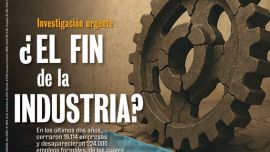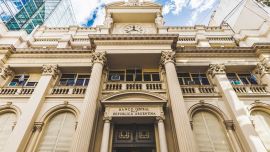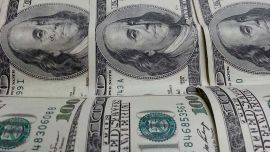A dollar more inclined to fall than rise (below 44 pesos at times last week while spending most of the previous week above 45 pesos and over 46 pesos a month ago) is at last trending the economy towards stability after several weeks of calm.
Even if this calm was not translated into a substantially lower inflation last month (May posted 3.1 percent as against 3.4 percent in April), it is confidently expected that June will maintain a downward trend for the 4th month, running around the 2.5 percent level or only slightly above.
If Argentina has been plagued by stagflation for 14 months now, the government’s economic team is optimistic that both halves of this phenomenon are bottoming out. In this context the grim figure of -5.8 percent negative growth announced by INDEC statistics bureau on Wednesday (the same day as the double-digit unemployment of 10.1 percent) is almost good news because things are only likely to improve from there.
If the dollar can continue to be tamed without the need to raise interest rates or sell Central Bank reserves, a relaxation of monetary policy could turn the corner on recession.
Even if opinion polls are not technically an economic factor, the recovery of presidential popularity plus the main opposition ticket now being headed by a pragmatist rather than a populist is expected to reduce market panic, thus making for less volatility.
Yet there are still few signs of any pickup on consumer markets, despite a stabler exchange rate and prices. This year is expected to be the first electoral year since 2009 (when the entire planet was still recovering from the 2008- 9 financial meltdown) with a fall in consumer spending. News of Argentina meeting its Hilton quota (29,500 tons of meat sales to the European Union) for the first time in a decade is an encouraging export success but does not help the domestic market.
Nor is there much scope for boosting the economy via public works, given the fiscal constraints imposed by last year’s agreement with the International Monetary Fund (IMF).
Ever since taking office President Mauricio Macri has
tried to downplay the economic difficulties appearing
early in the year by expressing
optimism about the “second
half” and each time he has
been disappointed (except perhaps in 2017). Could his luck
be about to change? related news





















Comments